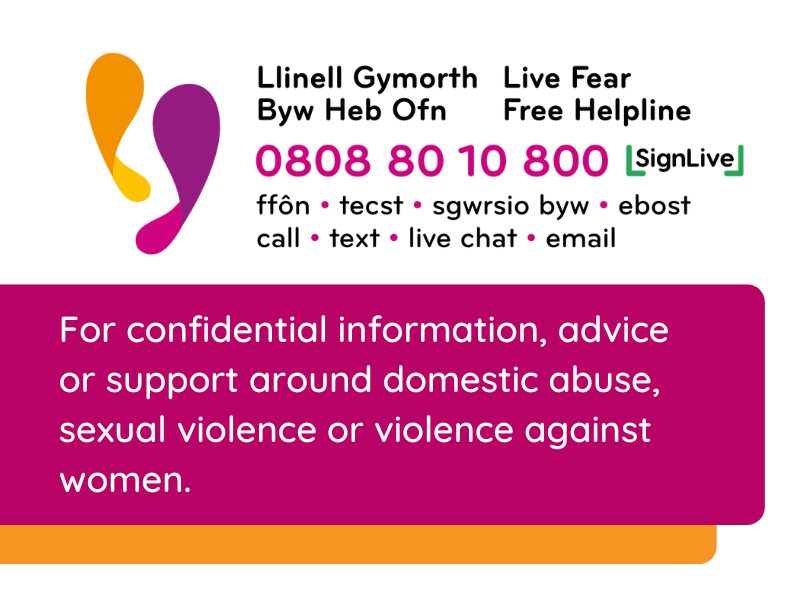
If you are a parent who is concerned about a child or young person who may be experiencing domestic abuse or at risk of harm, you should contact the police and obtain urgent legal advice by calling 999.
For advice, information and support, contact the Live Fear Free Helpline – a free, 24/7 service that supports everyone, whether you are experiencing abuse yourself, or are concerned about someone you know, the helpline can listen to your concerns and signpost if necessary.
- Call 0808 80 10 800
- Text 07860 077333
- Email [email protected]
- Web chat https://gov.wales/live-fear-free/domestic-abuse-wales

There is a common myth that Children’s Services (social workers) will automatically place children in care if they come from a home where domestic abuse is happening. This is very rare. Children’s Services, social workers, and other professionals have national guidance on their duty to take special care to help safeguard and promote the welfare of children and young people who may be living in particularly stressful circumstances, which include families where there is violence against women, domestic abuse and/or sexual violence.
Further information about Child Arrangement Orders and the Family Courts are available from Rights of Women and Cafcass Cymru.
Signs that your teenager may be in an abusive relationship:
Abusive relationships can be hard to articulate for both the young person and the parent. Young people learn how to form relationships from what they see around them. As such, it is important to teach young people what healthy and unhealthy relationships look like, and to how to spot abusive behaviour.
Some indicators of unhealthy relationships include:
- isolation – no longer spending time with you or their usual circle of friends
- being withdrawn or quieter than usual
- being angry or irritable when asked how things are
- anxiety around ‘phone-free time’
- sudden unexplained personality changes, mood swings, or seeming insecure
- making excuses for a partner
- physical signs of injury
- truancy
- drug and alcohol dependency
- self-harm or suicidal thoughts
There may also be attitudes and behaviours to look out for in children and young people, such as:
- believing they have the right to control others
- displaying masculinity through physical aggression is okay
- demanding intimacy
- believing they will lose respect if attentive and supporting to parents/carers
- believing men and women are not equal
What you can do to help:
- talk to them about healthy relationships e.g., what should they expect
- talk to them generally – build trust and openness with your teenager
- model healthy relationships
- get them specialist support, for example, from local domestic abuse services
- give them advice on calling ChildLine 0800 11 11
- give them the Live Fear Free Helpline number 0808 80 10 800
Source: ‘Do you know if your teenager is in an abusive relationship?’

